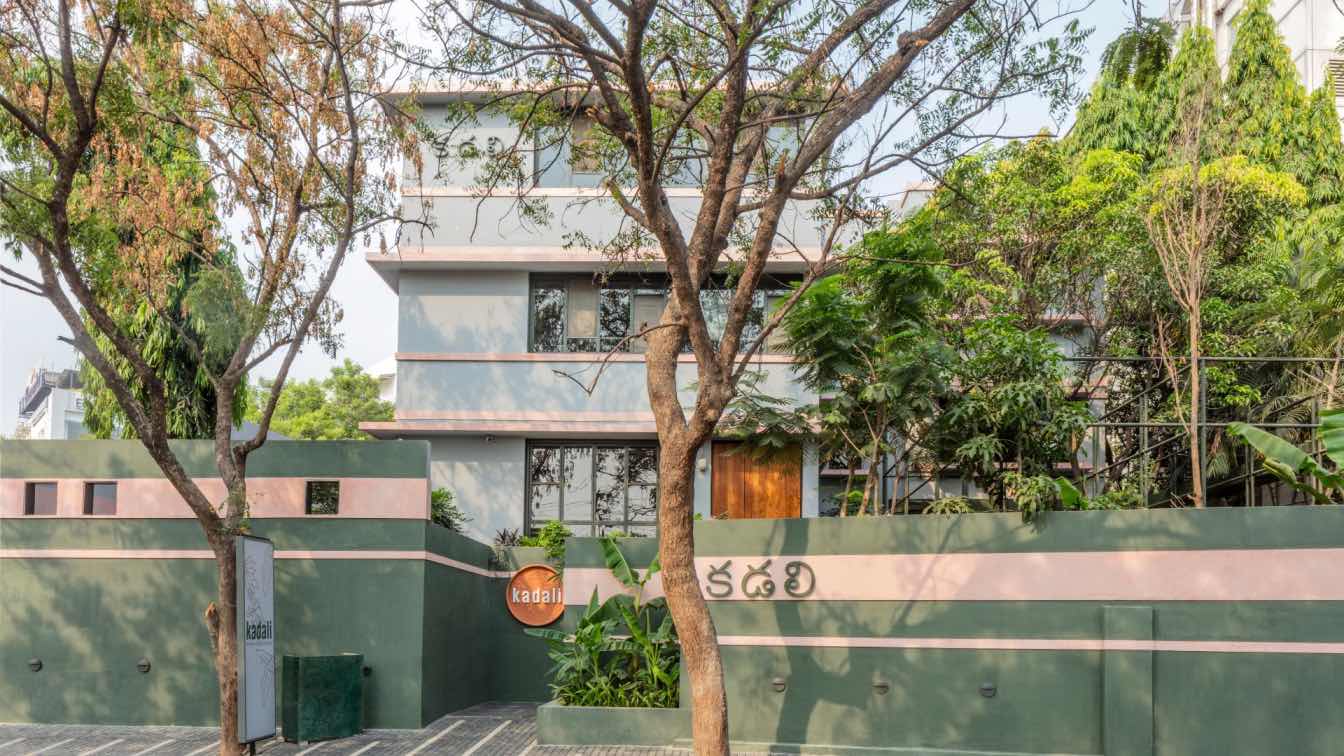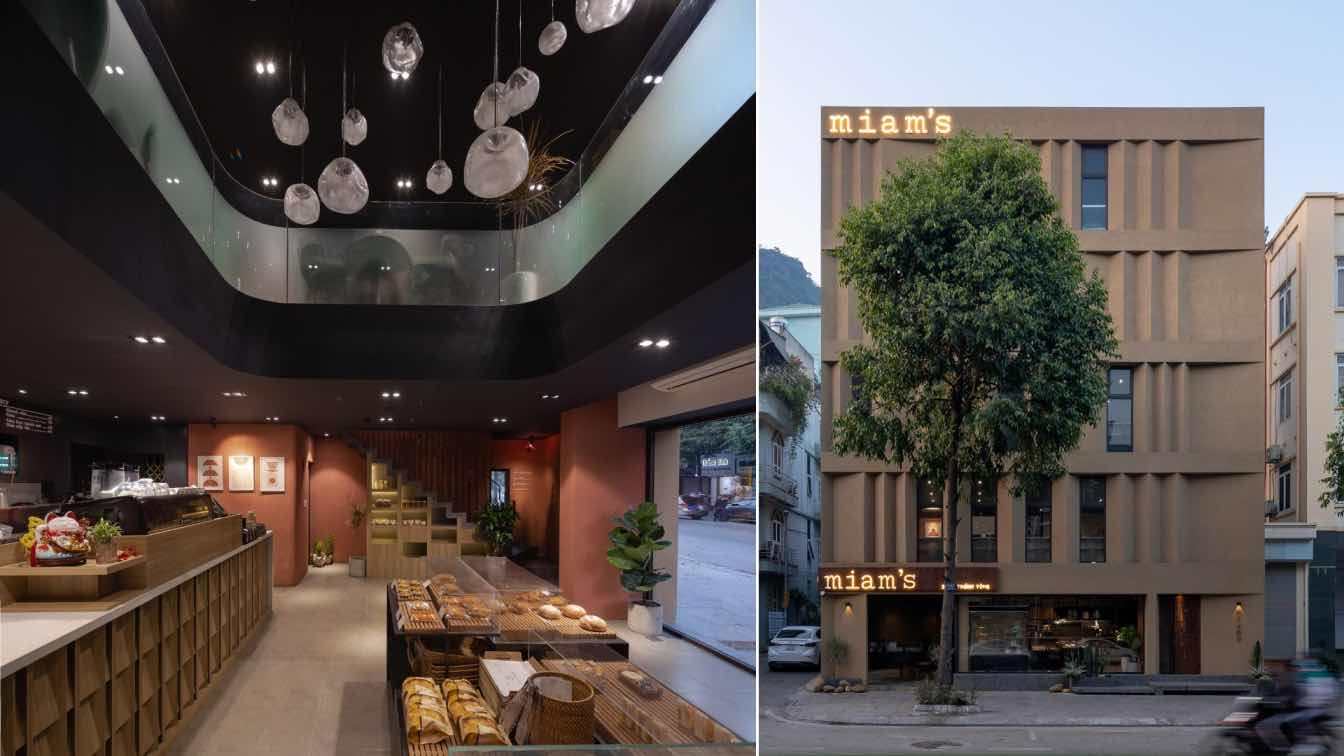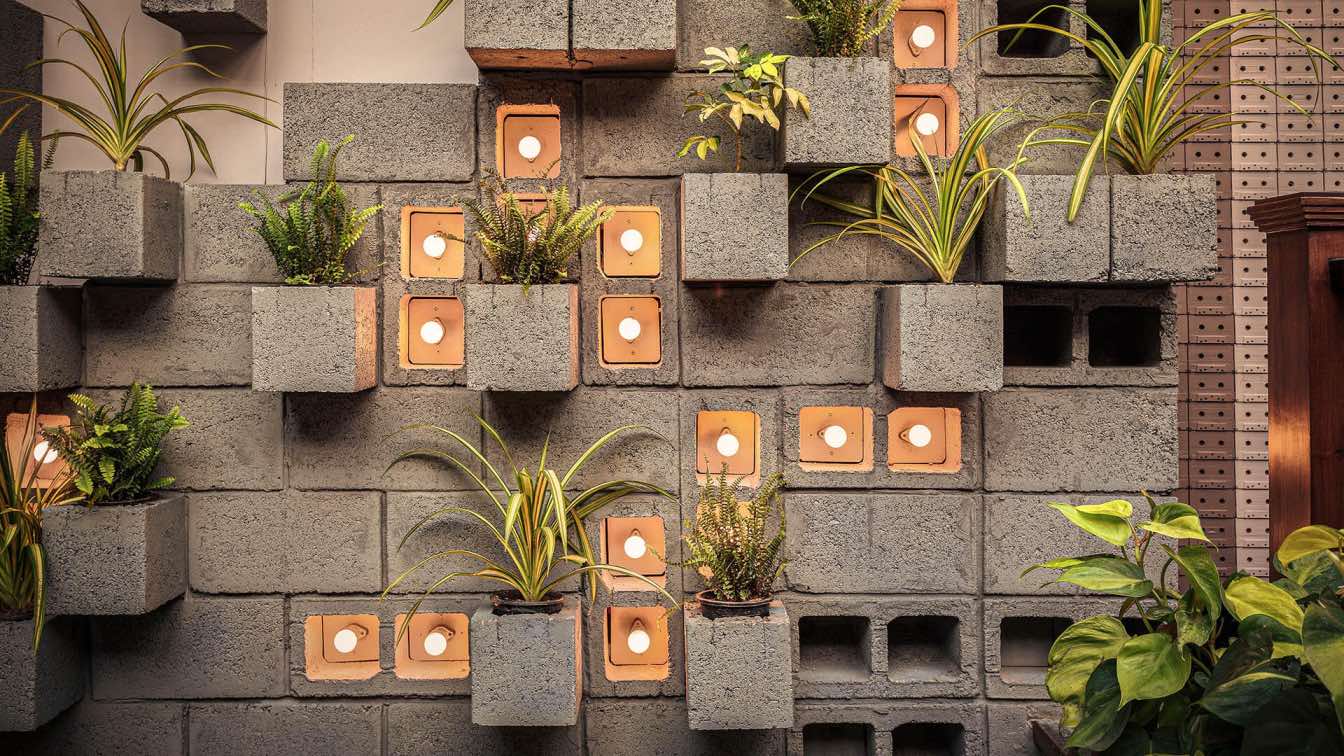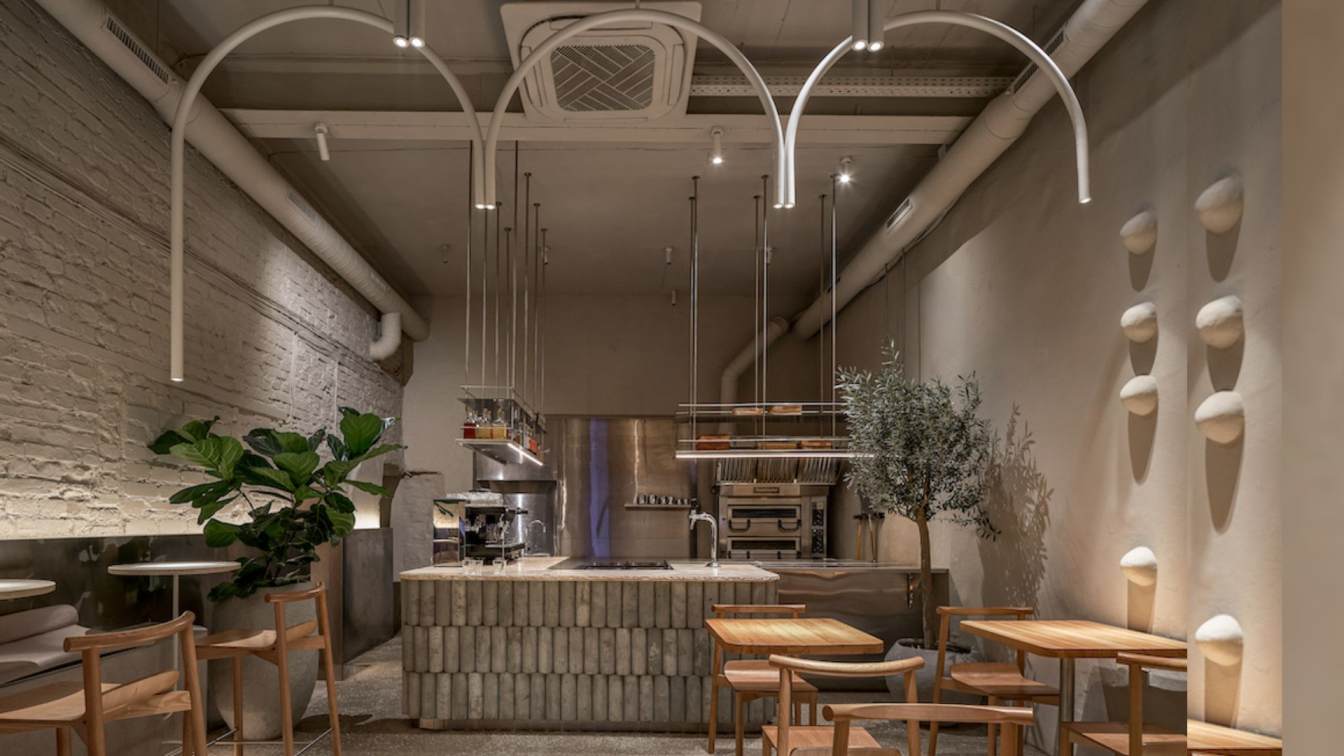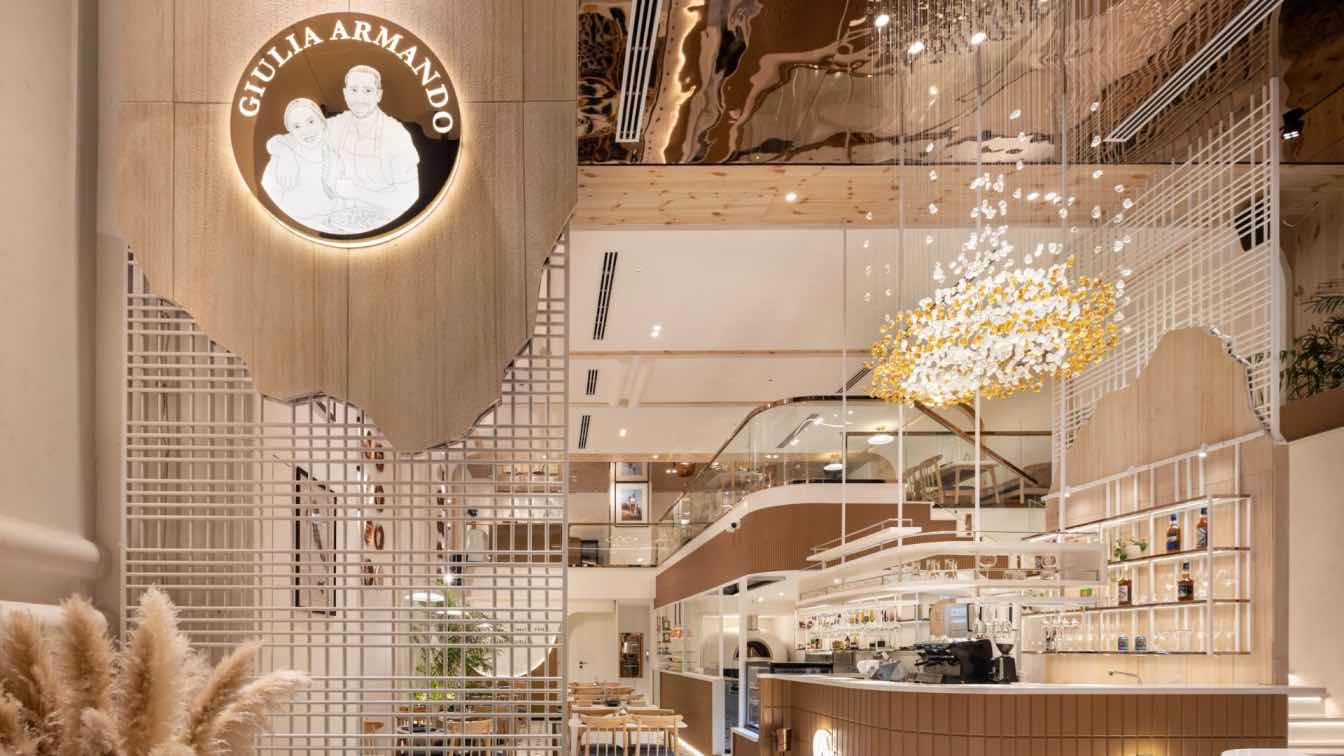Kadali's transformation from a vintage house into a culinary haven through adaptive reuse is not just a renovation; it's a testament to the art of preservation and innovation. Each facet of this transformation, meticulously curated to pay homage to the late 60s era while embracing modern sustainability principles, speaks volumes about the dedication to heritage and environmental consciousness. By carefully integrating additional structures with a focus on minimal material usage, Kadali not only retains its historical charm but also sets a benchmark for eco-conscious architectural practices within the hospitality industry. Every detail, from the choice of materials to the layout design, reflects a profound respect for the past while embracing the future of dining experiences.
The authenticity of Kadali's design is its hallmark, evident in every corner of the restaurant. Original elements like filler slabs, oxide walls, and locally sourced Kadapa flooring serve as anchors to the past, preserving the architectural integrity of the structure while adding layers of historical richness to the ambience. By eschewing alterations to the existing structure and opting out of false ceilings, Kadali ensures that its character remains unblemished, offering patrons an immersive journey into the bygone era without compromising on modern comforts. This commitment to authenticity fosters a sense of connection and belonging, making Kadali not just a dining destination but a cultural landmark deeply rooted in its heritage.

The name "Kadali," derived from the Sanskrit word for the banana plant, encapsulates the essence of abundance and prosperity that permeates the restaurant's design and culinary philosophy. Like the versatile banana plant, every aspect of Kadali, from its layout to its decor, serves a purpose of nourishment and delight. The symbolic presence of the banana plant creates a cohesive narrative that transcends mere aesthetics, fostering an environment of warmth and hospitality that resonates with patrons on a profound level. Conceptualised by Sona Reddy and her design collective, Kadali is more than just a restaurant; it's a homage to the timeless concept of 'home,' blending the simplicity of the past with the vibrancy of the present to create a welcoming sanctuary in the heart of Jubilee Hills.
Nestled amidst the lush greenery of Jubilee Hills, Kadali occupies a former residential site, offering panoramic views of KBR National Park. The transformation of this site into a premier dining destination is a testament to the collaborative efforts of client Keerthi Reddy and designer Sona Reddy. The design brief prioritised the preservation of the site's original character while infusing it with modern amenities to create a harmonious blend of tradition and innovation. Sona Reddy's approach to adaptive reuse focused on maximising seating and ambience without compromising on the structural integrity of the old house, resulting in a seamless fusion of historic charm and contemporary elegance that captivates visitors from the moment they step through the doors.

Kadali's interiors are a celebration of Indian craftsmanship and design heritage, with every element meticulously curated to create an immersive sensory experience. Earthy tones, raw textures, and vintage accents evoke a sense of nostalgia while providing a backdrop for culinary exploration. The use of materials like Athangudi tiles, Indian green marble, and refurbished cane chairs adds a tactile richness to the space, inviting patrons to linger and savour each moment. From the fruit-bearing illustrations adorning dining tables to the ceramic jars filled with pickles, every detail is thoughtfully curated to enhance the dining experience and create lasting memories for guests.
The architecture of Kadali is a testament to the seamless integration of indoor and outdoor spaces, with clean lines, green-hued shutters, and pink oxide bands defining the structure's silhouette. The thoughtful design allows natural light to filter through the space, creating a warm and inviting ambience that feels like a homecoming. Outdoor seating areas, shaded by lush canopies and adorned with whimsical metal sculptures, offer a tranquil retreat from the hustle and bustle of city life, further enhancing the restaurant's allure. Each architectural element, from the cantilevered benches to the planter-embedded walls, serves the purpose of fostering connection and communion, making Kadali a destination where memories are made and cherished for years to come.
Sona Reddy's vision of adaptive reuse goes beyond mere renovation; it's a testament to the transformative power of design in preserving heritage and creating meaningful experiences. By blending historical elements with contemporary sensibilities, Kadali offers a dining experience that is both nostalgic and refreshingly modern, setting a new standard for adaptive reuse in the hospitality industry. As patrons step into Kadali, they embark on a journey through time and culture, where every detail tells a story, and every moment is infused with the warmth of 'home.'
"Savouring tradition and innovation in Jubilee Hills' newest culinary gem, Kadali, envisioned by Sona Reddy Studio, it celebrates the richness of Southern Indian heritage".

































